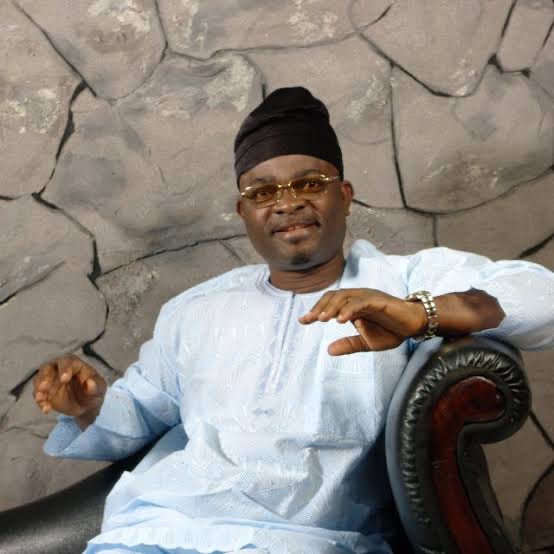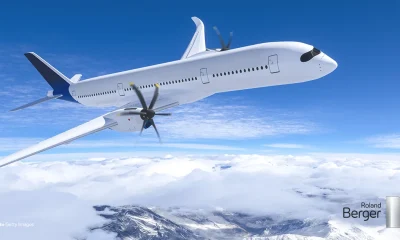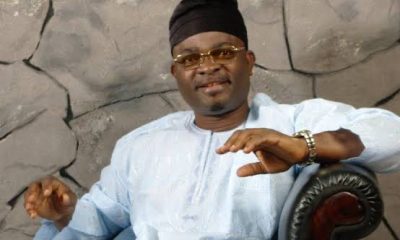NEWS
Stakeholders Canvass Abolition of Female Genital Mutilation

Stakeholders, on Friday, called for abolition of female genital mutilation (FGM).
Stakeholders made the call during the launch of a book: ‘Ogorire: Our Blood, their Bond,’ written by a federal civil servant, Mr Kunle Awojemila, in Abuja.
One of the stakeholders and wife of former Gov.
Olusegun Mimiko of Ondo State, Mrs Olukemi Mimiko, described FGM as an anomaly and urged that it be abolished outright.“We must shout; we must scream; we must pass the message in our cars, homes, offices and villages that we should stop FGM, until there is no one female being subjected to this horrible treatment.
“There have been cases of women who had been rendered barren because of infection from the day they were mutilated.
“There have been stories of women, after marriage, who have to be sent back for surgeries to open them up again. Mind you, those are even the lucky ones who have the money, means and knowledge,” she said.
Mimiko, who was the mother of the day at the occasion, said that many women had been left to wallow in tears, nights without end, because they could not satisfy their husbands on bed.
“There have been stories of women who killed themselves because of the consequences of FGM,” she said.
She said that the author of the book should be celebrated, as he had succeeded in passing cogent messages that should be spread across every corner of the communities until FGM was totally stopped.
A retired Director at the federal civil service, Mr Olowoofoyeku Olusoji, said that the book was going to add to the others earlier written on FGM.
While urging everyone to spread the message in order to stop the practice, Olusoji commended the author on the sensitisation on the dangers of FGM through the book.
The Eleriti of Eriti-Akoko, Oba Amos Ogunleye, and the Olojo of Igashi-Akoko, Mrs Mojirade Ipinaye, commended the Federal Ministry of Environment for its support to the author, whom they described as a hospitable and resolute person.
Responding, the author, Mr Kunle Awojemila, said that the book was aimed at sensitising societal segments on the danger of FGM.
Awojemila urged everyone to read and propagate what was in the book to every nook and cranny of the country for the barbaric act to be eradicated.
NAN reports that “Ogorire” is a festival in Terengo-Orisa Akoko in Ondo State and also an initiation into womanhood through circumcision.
Awojemila, who was born in 1971, is a staff member of the Federal Ministry of Environment.(NAN)
NEWS
The Man Rotimi Makinde: A True Progressive by All Standards

By Kolapo Ogundare
It is impressive to note that many well-meaning Nigerians are now coming out, recounting several good deeds and socio-economic empowerment programmes which Hon. Rotimi Makinde embarked on when he held sway as the representative of Ife Federal Constituency at the House of Representatives in Abuja.
There are several accounts of how the veteran actor and politician touched many lives through scholarships to brilliant but indigent students, and financial support to small and medium scale business owners.
Provision of barbering kits to barbers, and hairdressing equipment to hair dressers in large numbers; provision of buses, tricycles, motorcycles and cars to several vulnerable segments of the society etc.Notable among his midas touch even as a Muslim was the building of a church to replace the old church of popular pastor, Akinola, who was assassinated on the eve of 2011 elections, which Makinde eventually won.
Records show that the church was built in the late pastor’s memory to compensate the church leaders, the surviving widow of the church founder and other innocent people who lost their lives to the cold hands of death by men of the underworld.
In addition to this church building was a two-bedroom flat for the widow, prophetess Akinola.
The church cost over N10 million (as it then) was officially inaugurated on October 27, 2014. Makinde’s act of giving back to his community is a testament to his commitment to serving and uplifting his constituents.
Reminiscing on this significant milestone, Prophet Elijah Makufota said:
“Only a liberal Muslim by faith can build a church. Today we celebrate a remarkable philanthropist Hon Rotimi Makinde whose generosity knows no borders—bridging mosques and chapels, uniting hearts across faiths. His vision reminds us that love, compassion, and service are the truest expressions of any religion. A rise La ri ka “.
Fairness, kindness, and justice are the true compasses of a good heart—not the label of a creed. When we measure a person by the content of their character rather than the doctrine they profess, we strip away the divisions that religion often erects and focus on the common thread that binds us: our shared humanity.
In a world where every individual is judged by how they treat others, by the equity they extend in everyday interactions, and by the integrity they show when no one is watching, we create a society that thrives on cooperation rather than conflict. Let us therefore place our emphasis on the principles that unite us—fairness, compassion, and justice—and allow those values, not religious affiliation, to be the true yardstick of a person’s worth.
“A kind act is a universal prayer; a fair decision, a lasting testament. Let us be judged by the deeds we do, not the faith we claim. Rotimi Makinde remains a shining light in our body politic and surely posterity will be kind to him.
A leader with quality and distinction is characterized by their ability to inspire, guide, and support a team. They are self-aware, communicate effectively, delegate work, and encourage strategic thinking. These qualities are essential for leading with confidence and fostering a productive, motivated team. That is who Rotimi Makinde is, this true blood of Ile-Ife undoubtedly has a date with destiny and will surely be marked out for positive trajectory in our political landscape.
All our political stakeholders and decision makers must take note of this political icon, a loyal party man, he is ever patriotic and with great uncompromising spirit, he is one individual who on several occasions sacrificed his convenience in the best interest of his party All Progressives Congress (APC) and Osun State particularly.
Makinde has consistently demonstrated resilience, a strong work ethic and an unwavering commitment to excellence in the execution of any assignment given to him with high moral rectitude. I wish him best of luck in his political journey. May God bless Osun State, bless our leader and mentor, President Bola Ahmed Tinubu GCFR and also bless our dear country, Nigeria.
Kolapo Ogundare writes from Ede, Osun State.
ReplyForward
Add reaction
NEWS
FG, NBS Launch Nationwide MICS7 Survey
From Francis Sadhere, Delta
The Federal Government of Nigeria, through the National Bureau of Statistics (NBS), has officially launched the Multiple Indicator Cluster Survey Round Seven (MICS7), a nationwide household survey supported by the United Nations Children’s Fund (UNICEF).
MICS7 is the seventh round of the globally recognised Multiple Indicator Cluster Survey programme and is aimed at generating critical data on the well-being, health, education and living conditions of women and children across Nigeria.
The survey is expected to provide reliable statistics to support evidence-based policymaking and enable effective tracking of Nigeria’s progress toward achieving the Sustainable Development Goals (SDGs).
The survey covers key thematic areas such as education, health, nutrition, immunisation, water, sanitation and hygiene (WASH), and child protection. It also introduces new data collection modalities to capture emerging development indicators.
Trained enumerators are currently visiting selected households across the country, using digital data collection tools to ensure accuracy, efficiency and real-time validation of responses.
One of the major innovations of MICS7 is the introduction of anthropometric measurements for children under the age of five, which will provide more precise data on child growth, nutritional status and overall health.
The survey also features a new learning foundation component designed to capture school-related data, alongside expanded indicators that were not included in previous survey rounds.
Speaking on the exercise, the National Coordinator of MICS7 at the NBS, Dr. Isiaka Olarewaju, said the survey would track up to 40 internationally comparable indicators, making it one of the most comprehensive household data collection exercises in Nigeria.
He stressed that the success of the survey largely depends on the cooperation of selected households and urged Nigerians to welcome enumerators and provide accurate information.
MICS7 is being implemented through a collaborative partnership involving the NBS, UNICEF and state governments across the federation. The partnership, according to stakeholders, reflects a shared commitment to advancing national development through the generation of reliable and actionable data, particularly for children, women and households.
In Delta State, the Director of Statistics, Nkechi Maduemezia, has appealed to residents of selected households to fully cooperate with interviewers to ensure the success of the survey in the state.
She noted that accurate participation would contribute to improved planning, better service delivery and stronger development outcomes for both the state and the country.
The nationwide data collection exercise is expected to last about six months, after which the findings will be analysed and disseminated to inform national and state development policies, human capital development strategies and child-focused interventions.
NEWS
Finding Joy in Old Age: The Renewed Hope Intervention

By Bridget Tikyaa
Getting to the life journey of a senior citizen should ordinarily be a source of pride, a stage of celebration in life, less hassles, basic comfort, and time to savour the fruits of one’s labour. However, the reality is that things don’t turn out to be this way in most climes.
Just like in other parts of the world, in Nigeria, the elderly population are facing numerous challenges ranging from difficulties in accessing affordable, specialized healthcare services to address age-related health issues, irregular pensions and financial support to ensure decent living, improper access to basic amenities like housing, sanitation, and nutrition, emotional support, and many others.These are essentials that can significantly improve the quality of life for elderly individuals. The difficulties in accessing them highlight the need for improved social support systems, healthcare infrastructure, and policies to protect the rights and dignity of elderly individuals in Nigeria.
However, amidst these challenges, an organisation committed to better welfare for Nigerians has significantly focused on rendering vital support to vulnerable elderly Nigerians, giving them hope, comfort, and a new lease of life. This is the Renewed Hope Initiative (RHI), through its Elderly Support Scheme.
The Renewed Hope Initiative is the flagship programme of Nigeria’s First Lady Oluremi Tinubu, focusing on women, youth, children, and the elderly. The RHI is where every Nigerian’s dream of a better life is reached and has been creating real, lasting change by focusing on families, dignity, and opportunities.
Since 2023, the Renewed Hope Initiative has consistently celebrated elderly citizens every December as a mark of appreciation for their sacrifices. On Tuesday, December 16, 2025, the RHI held the third edition of such intervention – the Elderly Support Scheme – in Benue State at the Old Banquet Hall, Government House, Makurdi, with the theme “Finding Joy in Old Age”.
It is not just an RHI agenda but part of the Nigerian government broader social investment efforts aimed at promoting the dignity, comfort, and well-being of elderly Nigerians.
During the third edition of the Elderly Support Scheme, 250 vulnerable elderly citizens aged 65 years and above were supported by the RHI in Benue State. Significantly, the same number of elderly citizens in all the states of the Federation and the Federal Capital Territory received similar support.
Each beneficiary received N200,000 during the ceremony in Makurdi, while Governor Hyacinth Iormem Alia gave each beneficiary a bag of rice. There was also a free medical outreach for the elderly, during which beneficiaries received basic health checks, consultations and medical support, underscoring the holistic approach of the initiative to both financial and health needs of senior citizens.
Benue State Coordinator of the Renewed Hope Initiative, Hon. Scholastica Ben-Sor said the initiative, a pet project of Nigeria’s First Lady Remi Tinubu, reflects a resolute determination to honour senior citizens who have contributed immensely to nation-building.
She noted that since 2023, the Renewed Hope Initiative has consistently celebrated elderly citizens every December as a mark of appreciation for their sacrifices, with a total of 9,500 beneficiaries nationwide each receiving ₦200,000, totalling N1.9 billion.
“As we approach the festive season, it is our moral duty and indeed our joy to ensure that our elderly live their twilight years in comfort, good health and dignity,” the First Lady said in the message to the event.
The purpose is to make the senior citizens remain active, find purpose in community life, and embrace joy in old age.
For Hon. Scholastica Ben-Sor, valuing elderly citizens is absolutely necessary. “What you are today is not forever. Life may take you through certain curves you don’t know. The least person you see today may be the person you will look up to tomorrow,” she said, calling on society to treat the elderly with dignity, respect, and compassion.
She hailed all those impacting lives including Governor Hyacinth Iormem Alia, whom she described as a man of integrity, sacrifice and uncommon commitment to service, who has positively impacted families, homes and society at large, stressing that family, church and school form the bedrock of any society.
Although the governor did not attend the event, Hon. Ben-Sor disclosed that he directed that each of the 250 beneficiaries receive a bag of rice through the State Emergency Management Agency (SEMA), in addition to facilitating the free medical outreach conducted for the elderly during the programme.
Goodwill messages were delivered by several dignitaries, including a representative of the wife of the Deputy Governor of Benue State, Hon. Mrs. Christy Ode, who praised the First Lady for sustaining the initiative and applauded Governor Alia for his visible developmental strides across the state while the Commissioner for Women Affairs and Social Development, Mrs Teresa Odachi Ikwe, represented by the Director of Finance and Accounts, Hon. Ifa Celestine commended the transparency of the RHI and advised beneficiaries to use the funds judiciously to improve their standard of living. Similarly, the Benue State Women Leader of the All Progressives Congress, Hon. Mrs. Helen Agaigbe appreciated the First Lady for her remarkable traits of compassion displayed through consistent support for the vulnerable in the society.



























